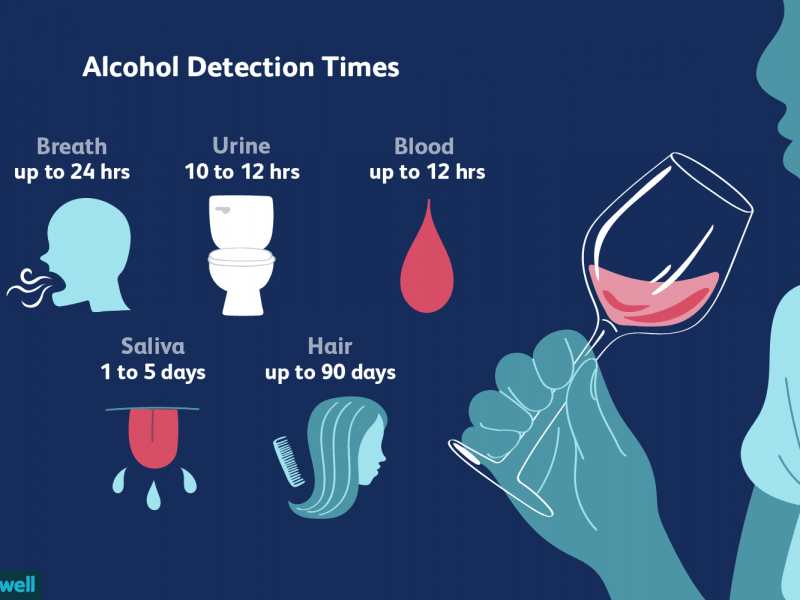
How does the body metabolize alcohol? – The speed of alcohol metabolism is different for everyone. If you’ve had a drink or two, you might be wondering just how long that alcohol will stay in your system.
In urine, alcohol can be detected from 12 to 130 hours if a person has been drinking excessively. Phosphatidylethanol (PEth), a biomarker that reflects alcohol intake, can be detected up to 14 days in urine. Alcohol can be detected from 12 to 24 hours in the breath, as well as in saliva. And when tested in the hair, especially at the root, alcohol can be detected up to 90 days after a person has stopped drinking.
So how fast can the body break down alcohol and is it possible to “speed things up?” Hepatologist Jamile Wakim-Fleming, MD, explains how your body gets rid of alcohol and gives us a better idea of what affects this process.
How does the body metabolize alcohol?
The liver gets most of the attention when it comes to alcohol metabolism. But it’s not the only gear in the machine.
The stomach’s role
“When you have a drink, its first stop is the stomach,” explains Dr. Wakim-Fleming. “Some people have stomach enzymes that break down alcohol. These enzymes help divert some of the alcohol from going into your bloodstream.”
But not everyone has these enzymes, known as alcohol dehydrogenase (ADH) and aldehyde dehydrogenase (ALDH). “Studies have shown that women tend to have lower levels of ADH than men,” says Dr. Wakim-Fleming. “And people who drink regularly have lower ADH levels than people who rarely or never drink.”
If you don’t have enough ADH or ALDH, your stomach will send the alcohol directly to the small intestine. From there, it hits your bloodstream and your brain, and you start feeling its effects.
Next stop: the liver
The liver does the heavy lifting when it comes to processing alcohol. After the alcohol passes through your stomach, small intestine and bloodstream, your liver starts its cleanup. It removes about 90% of the alcohol from your blood. The rest comes out through your kidneys, lungs and skin.
How long does alcohol metabolism take?
“Alcohol metabolism time depends on the volume and strength of the drink,” says Dr. Wakim-Fleming. “The more you drink, the more your body has to process. And the concentration matters. Two ounces of spirits contain much more alcohol than two ounces of wine.”
One standard drink is about 14 grams of ethanol (alcohol), the amount found in:
- 12 ounces of regular beer with 5% ethanol (about one can of beer).
- 5 ounces of wine with 12% ethanol (about one glass of wine).
- 1.5 ounces of distilled spirits (80 proof) with 40% ethanol (about one shot).
After you start drinking, alcohol takes around 60 to 90 minutes to reach peak levels in the blood. Then, the body begins breaking it down.
The half-life of alcohol is four to five hours. A half-life is how long it takes for your body to get rid of half of it. But you need about five half-lives to get rid of alcohol completely. So, it takes about 25 hours for your body to clear all the alcohol.
Factors that affect alcohol metabolism
There is no set timeframe for how long alcohol stays in your system. The speed of elimination depends on your:
- Medications: Many prescription and over-the-counter meds have dangerous interactions with alcohol. Ask your doctor whether drinking is safe for you if you take any medications.
- Sex: Studies have shown that women take longer than men to process alcohol.
- Age: As we age, the speed of alcohol processing slows down.
- Body size: The less you weigh, the less water you have in your body. Alcohol goes into the water in your blood — but if you have less water, your blood alcohol concentration (BAC) will be higher. Smaller people can drink the same amount of alcohol as larger people but have a higher BAC.
- Health conditions: Kidney, liver and stomach conditions make it harder for your body to process alcohol.
How long can tests detect alcohol in the body?
When it comes to “passing” an alcohol test, there’s no guarantee. More sensitive or higher quality tests can pick up smaller amounts of alcohol. And because everyone metabolizes alcohol at their own rate, some people will take longer to clear it than others.
In general, this is the maximum amount of time tests can detect alcohol after you consume it:
- Blood test: 12 hours.
- Breath test: 24 hours.
- Saliva test: 48 hours.
- Urine test: five days.
- Hair test: 90 days.
Can you “sober up” faster with food or coffee?
Eating food and drinking coffee changes how your body uses alcohol. But they’re not miracle cures to help you sober up.
How food changes alcohol processing
Food changes how your body processes alcohol but not how fast it can do it. “When alcohol hits an empty stomach, it will move right through, quickly heading to the small intestine and your bloodstream,” says Dr. Wakim-Fleming. “You’ll feel more intoxicated and may notice stronger toxic effects, such as an upset stomach and a hangover.”
On the flip side, food makes the alcohol hang out in the stomach for a while. “Your stomach gets time to break down some of the alcohol before it moves into the small intestine,” she continues. “You can avoid some of alcohol’s toxic effects, but it won’t change how soon you can pass an alcohol test.”
Caffeine and alcohol
Alcohol is a depressant drug, so it makes you feel drowsy. Caffeine is a stimulant, which can perk you up and reverse some of alcohol’s effects.
Despite this opposite relationship, caffeine and alcohol don’t mix. “Mixing coffee or an energy drink with alcohol might make you feel less intoxicated,” says Dr. Wakim-Fleming. “But you can lose track of how much you’ve had to drink. And it won’t clear alcohol from your system any faster.”
Getting help for alcohol problems
If you think you need help to stop drinking, treatment is available. Talk with your doctor or start with one of these resources:
- National Institute on Alcohol Abuse and Alcoholism (NIAAA): The NIAAA has resources to help you find alcohol use treatment.
- Substance Abuse and Mental Health Services Administration (SAMHSA): The SAMHSA has a free helpline for people facing mental health or substance use disorders.
 News360hub Get the latest breaking news, world News and information on the top stories, business, sports, entertainment, politics, and more.
News360hub Get the latest breaking news, world News and information on the top stories, business, sports, entertainment, politics, and more.


